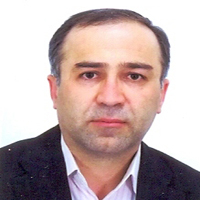Effect of pentoxifylline antioxidant supplementation on improvement of sperm motility parameters in non-breeding season
Despite extensive progress in reproductive techniques, sperm cryopreservation leads to reduction of motility and viability in comparison to fresh sperm. Scientists have studied different antioxidants to reduce the loss of viability, motility and DNA fragmentation, because this loss causes decrease in fertility. The biochemical changes which occurs during sperm cryopreservation affects the plasma membrane and as a result, sperm viability and fertility are affected after thawing. In ram sperm due to the high content of saturated high acid, cause high sensitivity to low temperatures and freezing. The process of fertilization introduces stress that greatly reduce its viability and fertility potential. Different antioxidants have been used to improve the quality of frozen semen which include methylxanthines such as pentoxifylline. Pentoxifylline can act as a protective against ROS, as well as protect and integrate cell membranes and is still used in freezing techniques and reduce the amount of lipid peroxidation. The purpose of this study was to compare the effect of adding different levels of pentoxifylline antioxidant to ram semen during nonbreeding season on membrane integrity, motility parameter and viability of freezing and thawing sperm.
In this study, semen was collected from 8 mature ram twice a week during spring season using an artificial vagina and the ejaculates were pooled in order to eliminate the individual effects of the rams. Tris lecithin–based extender was used in this study. After cooling, filling and sealing the samples, they were frozen with nitrogen vapor and immersed in liquid nitrogen and were stored until evaluation time. All steps were repeated in five replicates. For sperm evaluation, one month after freezing, the straws were extracted from liquid nitrogen and thawed in water bath at temperature of 37 °C for 30 s. Evaluation of sperm was performed for parameters containing CASA, abnormal morphology, malondialdehyde concentration.
Despite the availability of advanced reproductive techniques, semen freezing is characterized by lower motility and viability compared to newly ejaculated sperm. Researchers try to prevent sperm motility and DNA damage and increase cell death under oxidative stress by using antioxidants, which can cause sperm loss. In physiological conditions, there is a balance between ROS production and semen's antioxidant capacity. Over-production of ROS disrupts the function of semen antioxidant enzymes and ultimately sperm function. It has been shown that in sperm, cAMP activates protein kinase (PKA), which regulates the phosphorylation of tyrosine protein, which is an important regulatory pathway in modulating events related to sperm capacity and that it makes the sperm acrosome healthy and preventing its hyperactivity. Pentoxifylline enhances cAMP levels by inhibiting phosphodiesterase enzyme, which increases ATP, cellular glycolysis, energy production, therefore increases sperm motility, and energy source (ATP) production.Sperm motility is one of the main quality parameters of semen samples for artificial insemination. Pentoxifylline can act as a protector against ROS, it also protects and integrates cell membrane and is also used in sperm freezing. Addition of pentoxifylline to sperm increases creatine kinase protein activity, which may modulate the ability to use pentoxifylline to increase sperm motility. The researchers reported that this antioxidant could have a positive effect on sperm motility. Pentoxifylline and caffeine have increased sperm motility and viability of frozen sperm in different mammalian species. The results of the data analysis indicate that adding all levels of antioxidants to semen in the non-breeding season increases the progressive sperm motility, but this increase in treatments receiving 1.5 and 3 μM levels were significant compared to the control group. (P <0.05). The highest amount of motility parameters belonged to the 3 μM treatment. Addition of 1.5 and 3 μM of antioxidant Pentoxifylline significantly increased total motility compared to the control group (P <0.05). Results showed that STR parameters significantly increased (P <0.05) by adding 1.5 and 3 μM treatment. Although no significant differences were observed between control treatment and other experimental treatments for VAP, VCL, ALH, LIN, BCF, VSL parameters, by adding these treatments, these parameters were increased compared to control treatment.
In this study, various parameters such as sperm viability, morphology, sperm motility parameters and plasma membrane integrity, and level of malondialdehyde were evaluated during non-reproductive season. The results of this study showed that use of 3 μM pentoxifylline in the extender significantly improved the functional parameters of sperm after freezing-freezing in non-breeding season, while higher concentrations had less effect on the evaluated parameters.
-
Effect of Different Sources of n-3 Unsaturated Fatty Acids on the Fatty Acid Profile and Biochemical and Physiological Characteristics of Qezel Ram Sperm
Asef Ahmadfazel, Hossein Daghighkia*, Ali Hosseinkhani, Gholamreza Hamidian, Hamed Khalilvndi Behrouzyar
Research On Animal Production, -
The effect of apricot tree gum adding to tris-base diluents on liquid semen storage and ewe pregnancy rate
Reza Moradi, Gholamali Moghaddam *, Hosein Daghighkia, Babak Ghasemi Panahi, Peiman Khanzadeh
Journal of Animal Science Research, -
The Effect of using Different Levels of Luteolin on Reducing Malondialdehyde Content and Increasing the Motility and Viability of Ross 308 Rooster Sperm during Cryopreservation and Thawing Process
, *, Abouzar Najafi
Research On Animal Production, -
Modulation of Negative Effects of Physiological Stress on Frozen-Thawed Semen with Nutrition of Organic Selenium in Ross 308 Rooster
N Kamrani, A Karimi *, M Nazari, R Masoudi
Archives of Razi Institute, Nov-Dec 2021




